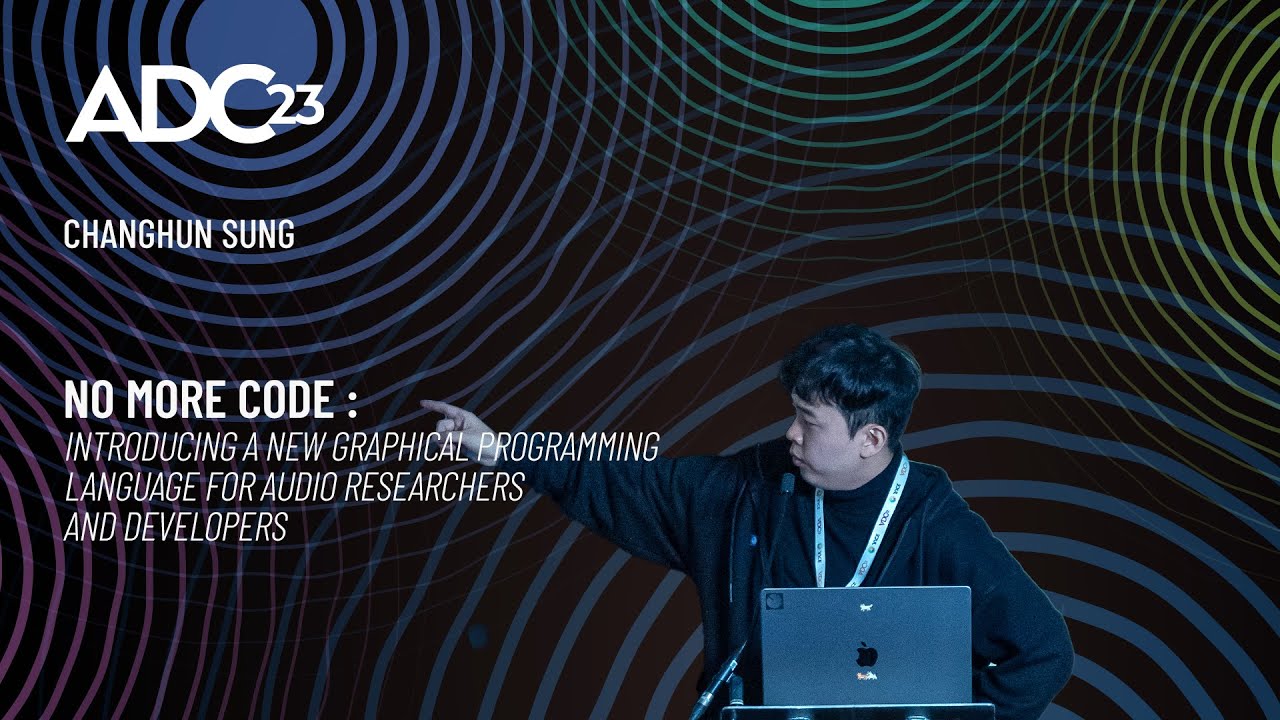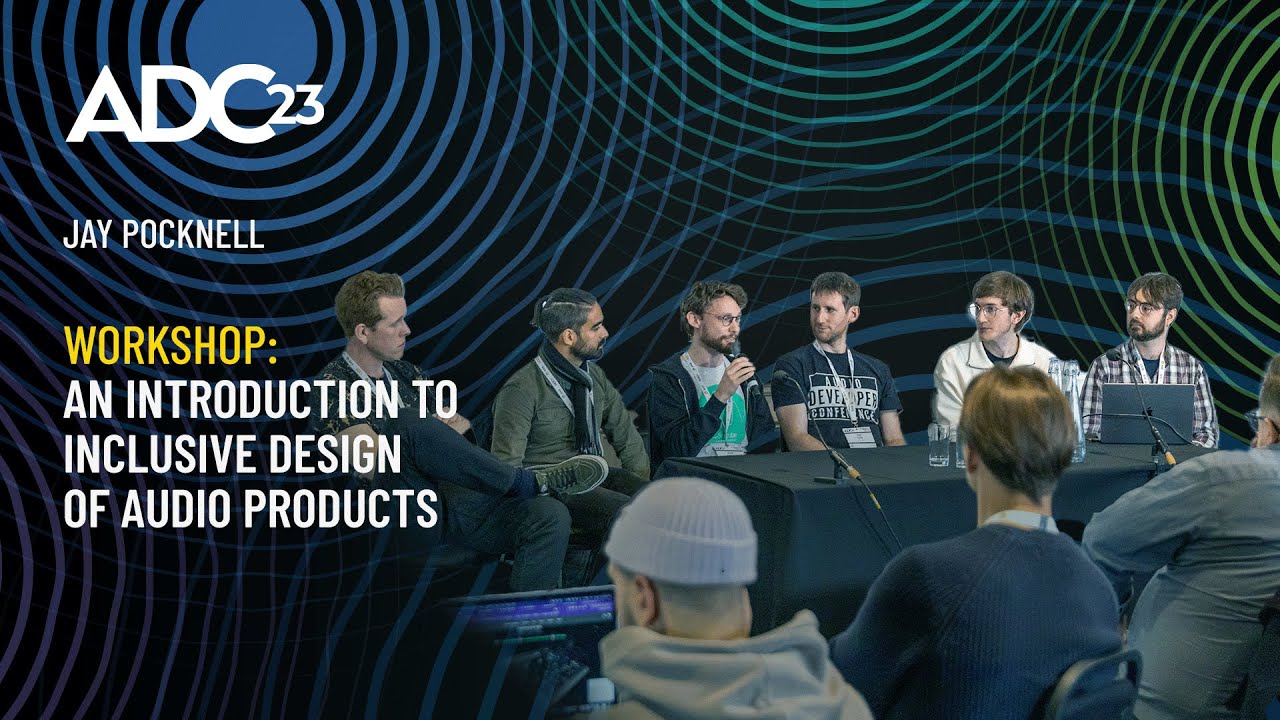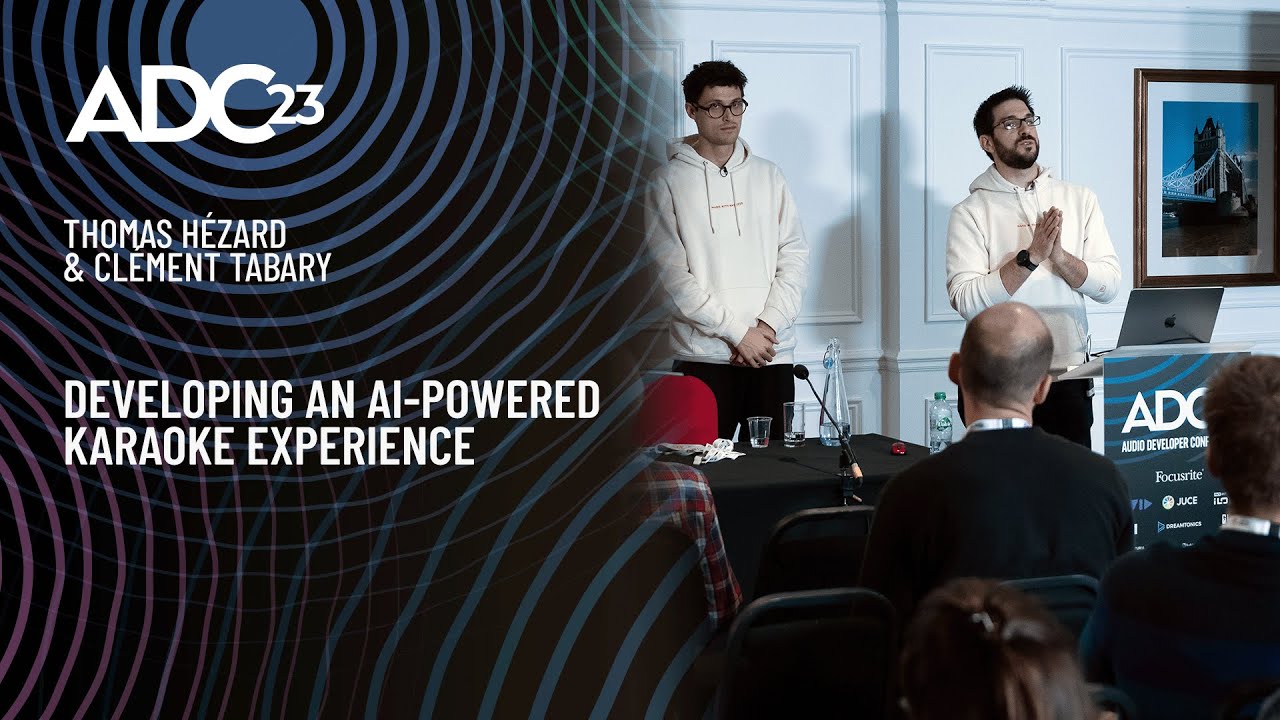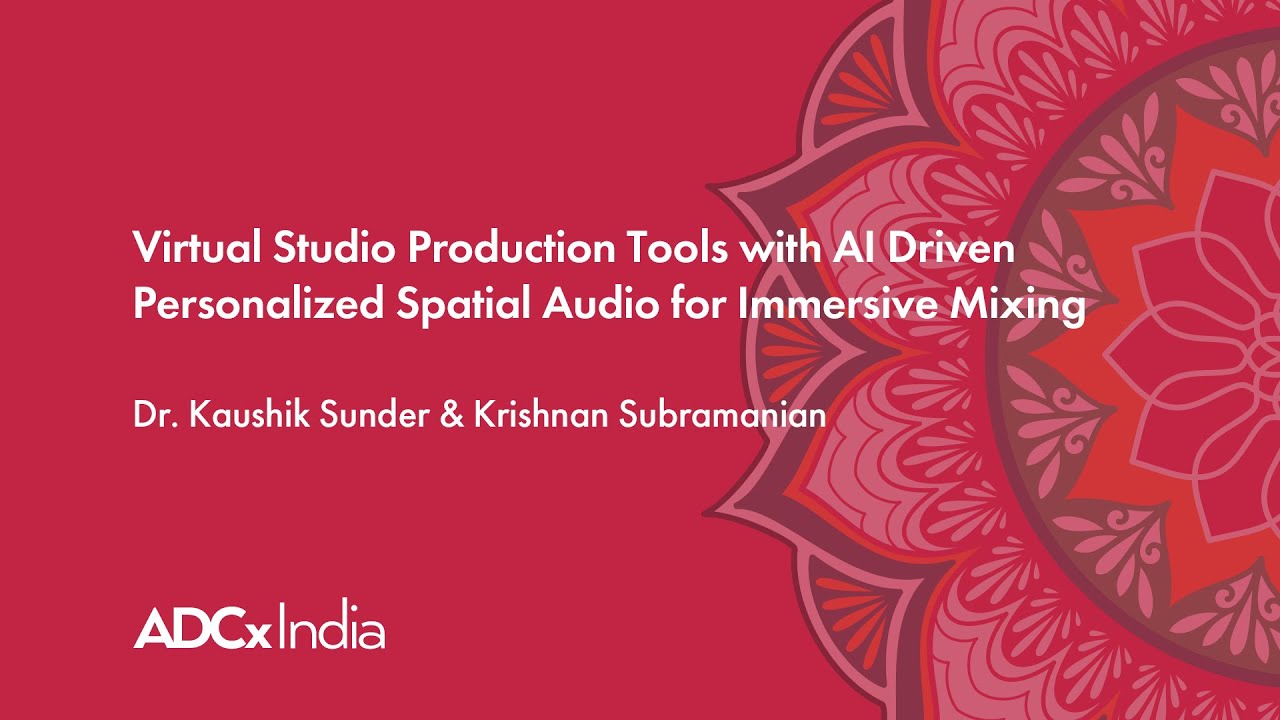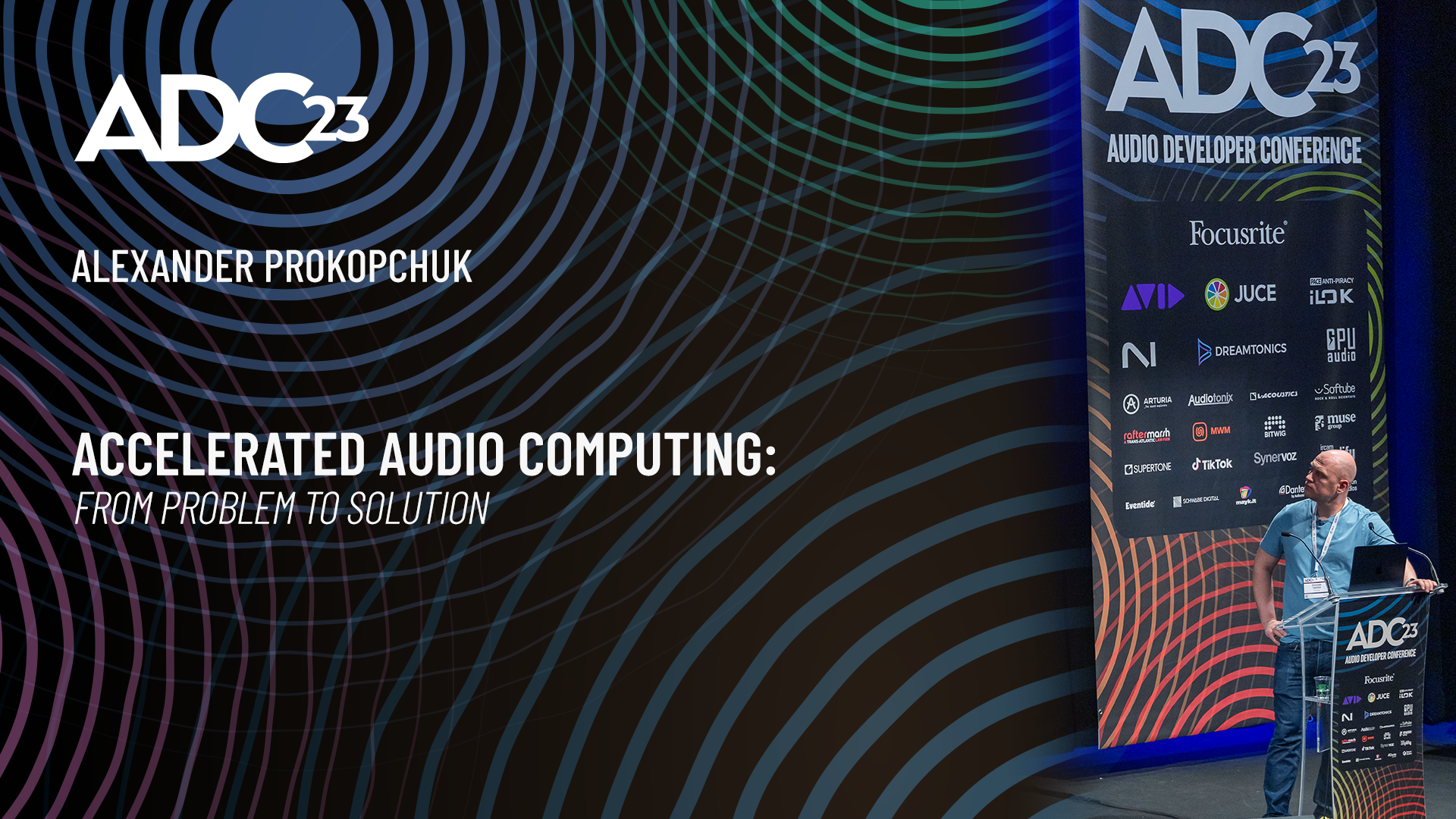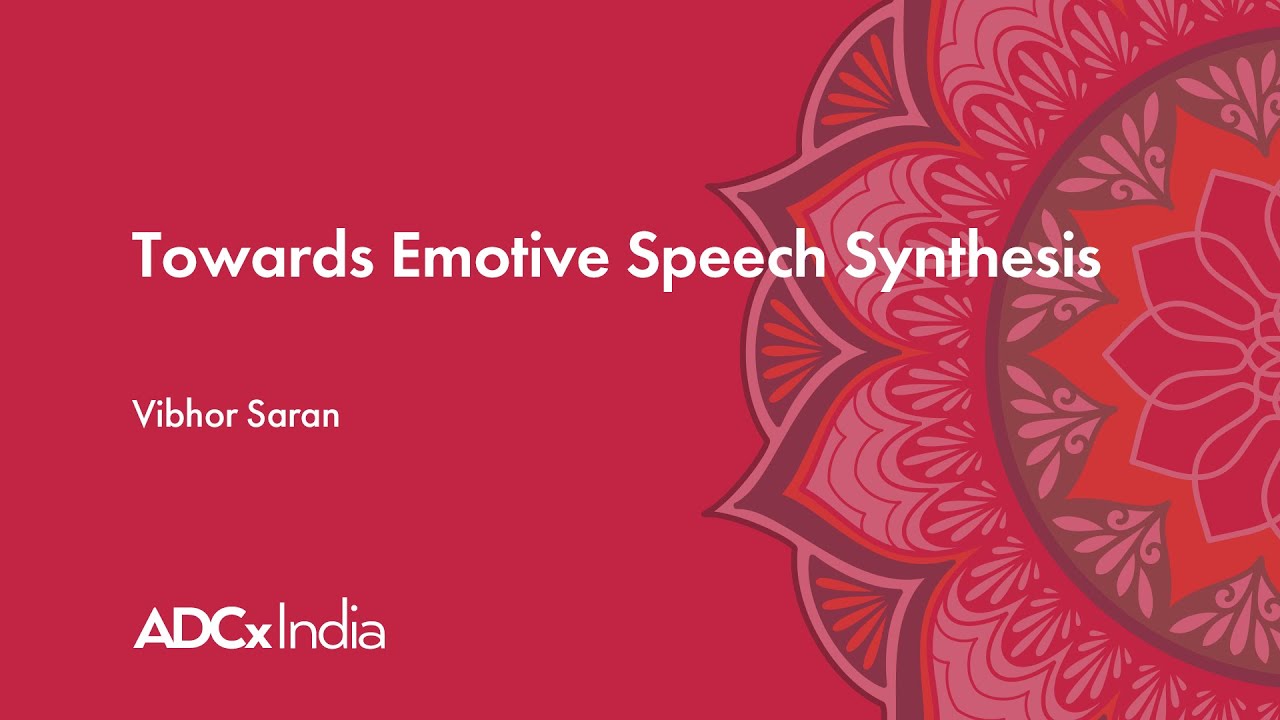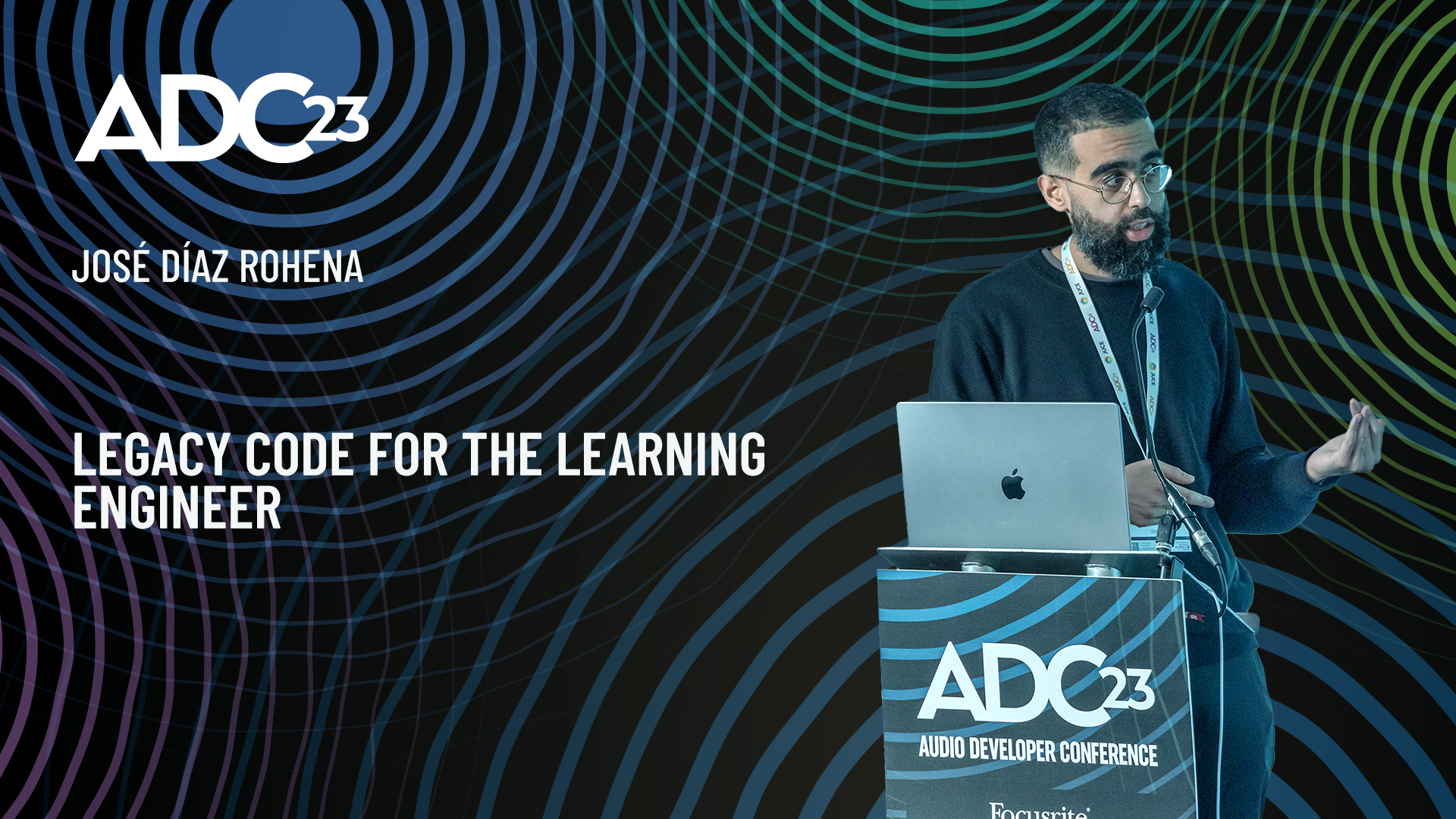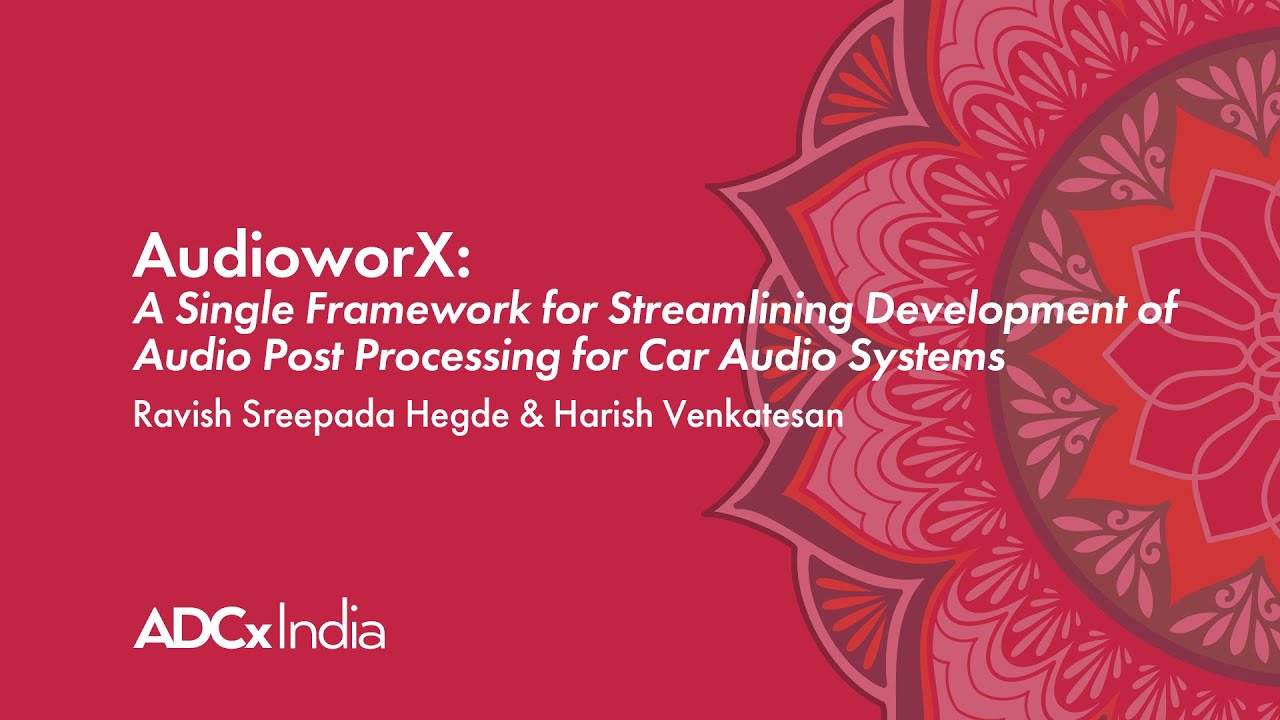https://audio.dev/ -- @audiodevcon
NO MORE CODE: Introducing a New Graphical Programming Language for Audio Research and Developers - ChangHun Sung - ADC 2023
Audio software development is rapidly moving towards incorporating machine learning-based processing. While research scientists are continuously presenting us with inventive results in the field of AI, there is a lack of software engineering tools to utilize these results.
We are introducing a new development framework to bridge the gap between AI researchers and software engineers, allowing both fields to work together seamlessly.
By borrowing some concepts from functional programming languages, we designed a new node-based graphical programming language for audio software development, which is capable of handling a variety of data types including audio, multi-dimensional tensors and MIDI. Furthermore, the system is designed to support looping and branching logic using only nodes and node connections. This allows the implementation of highly flexible data processing algorithms.
Finally, as an AI voice technology company, we will present a demonstration of the plug-ins developed using our new programming language, showcasing its adaptability and advanced capabilities.
Link to Slides: https://data.audio.dev/talks/2023/no-more-code/slides.pdf
_
ChangHun Sung
Chang Hun is a Software Engineer at Supertone, Inc. He previously worked in the game industry and used to develop game engines. Chang Hun now develops high performance C++ frameworks to accelerate the process of productizing ML models. He is also the principal clarinetist in an amateur orchestra in Seoul.
_
Streamed & Edited by Digital Medium Ltd: https://online.digital-medium.co.uk
_
Organized and produced by JUCE: https://juce.com/
_
Special thanks to the ADC23 Team:
Sophie Carus
Derek Heimlich
Andrew Kirk
Bobby Lombardi
Tom Poole
Ralph Richbourg
Jim Roper
Jonathan Roper
Prashant Mishra
#adc #dsp #audiosoftware #audio
